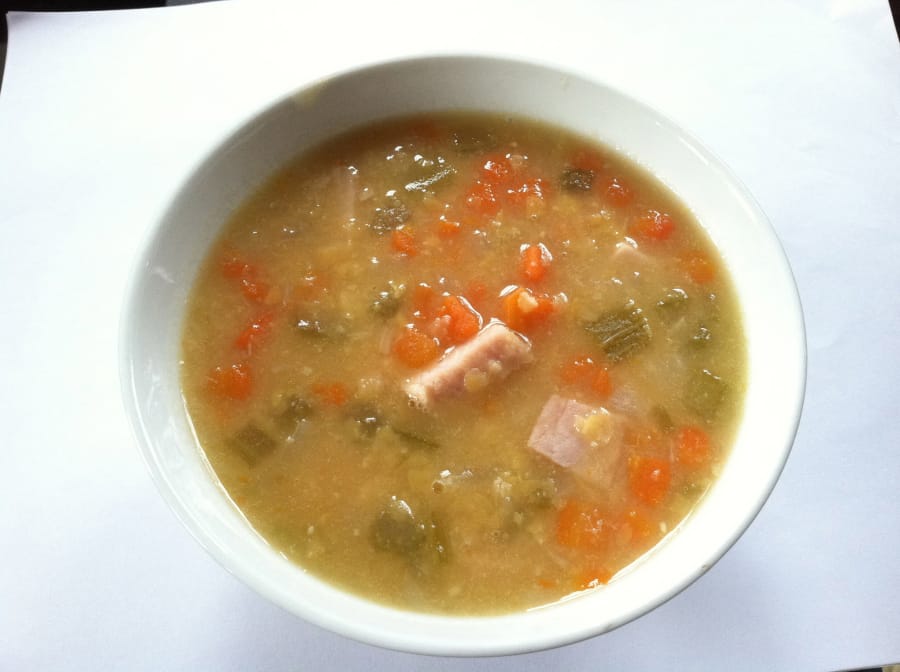There’s a reason we tend to congregate in the kitchen: It’s that warm spot in our home that feeds our soul as well as our hunger.
Whether kitchen duty is a longtime standby or a newfound luxury, there are many mealtime variations that take advantage of its daytime access. I’ve got soup on my mind, the kind that’s like a welcome hug at mealtime — and one that doesn’t require 6 feet of separation.
Certainly, you can open a can of your favorite combo. I grew up on Campbell’s condensed tomato, chicken noodle and its bean-and-bacon varieties. But — ding, ding, ding (right answer!) — you can fill your home with the fragrance of a soup-in-the-making, a lovely scent to behold and an even better dish when served.
Consider this: Soup is thrifty (waste not, want not, with the leftover tidbits that form its base). And, yes, it’s even somewhat magical as you combine water and vegetables together, with or without protein, to create something entirely, and remarkably, new. The fable of stone soup (google the story, if you’re unfamiliar) often comes to mind.



